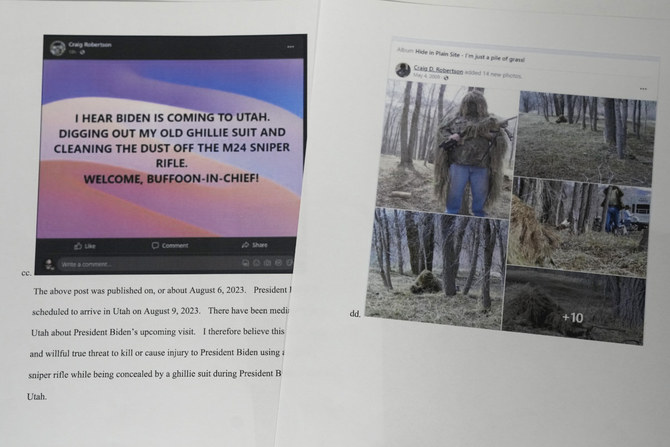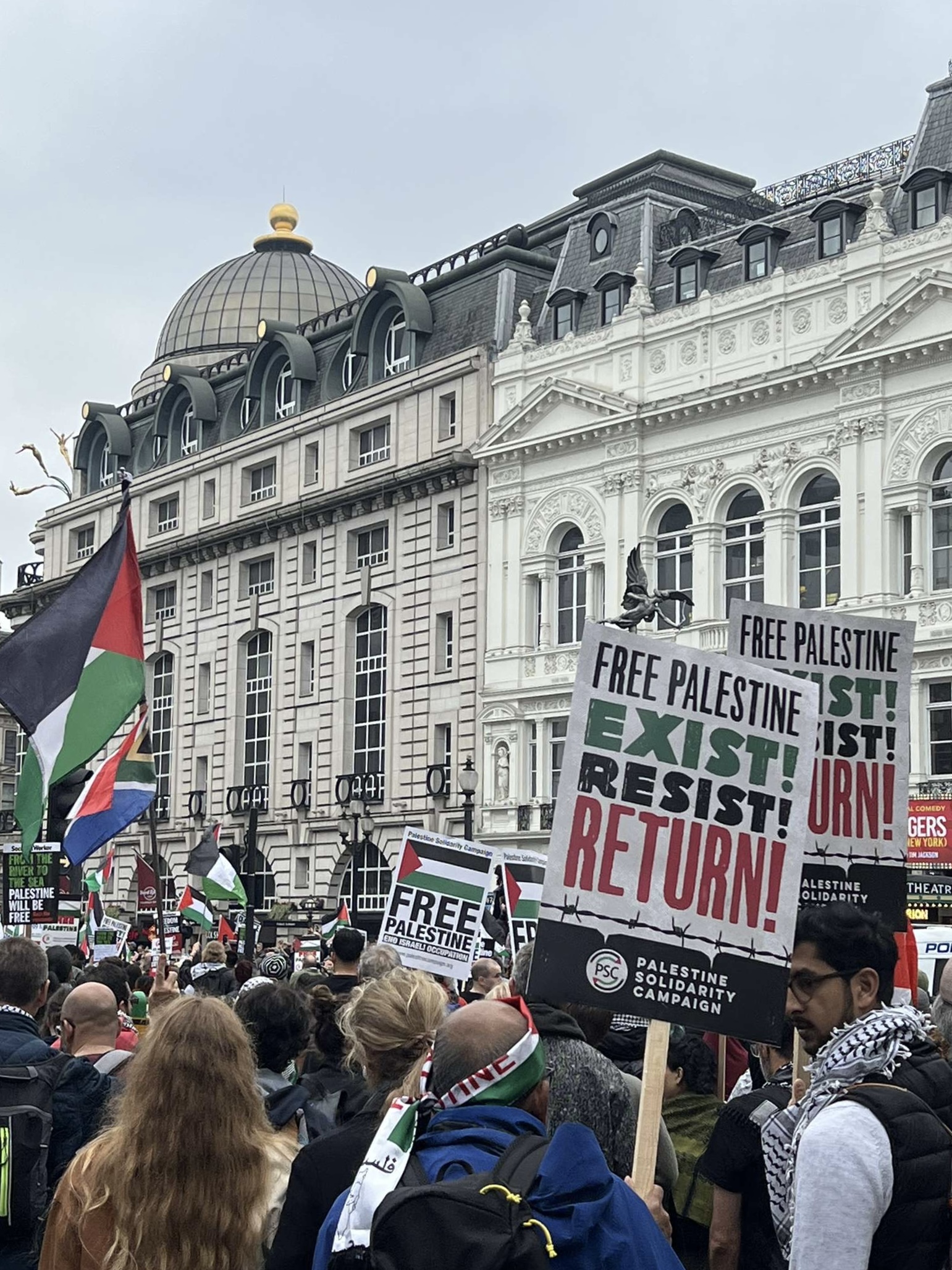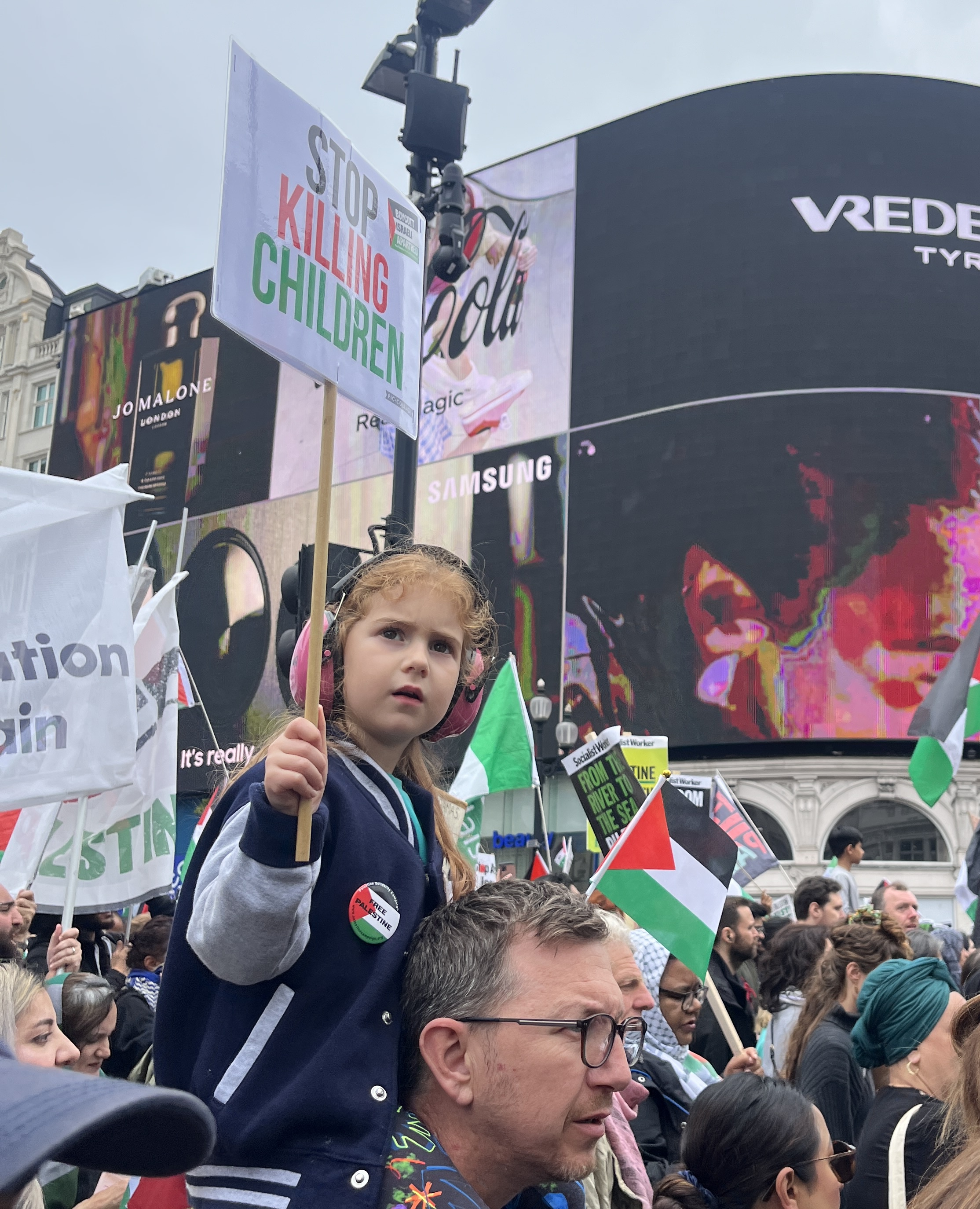PROVO, Utah: An armed Utah man accused of making violent threats against President Joe Biden was shot and killed by FBI agents hours before the president landed in the state Wednesday, authorities said.
Special agents were trying to serve a warrant on the home of Craig Deleeuw Robertson in Provo, south of Salt Lake City, when the shooting happened at 6:15 a.m., the FBI said in a statement.
Robertson was armed at the time of the shooting, according to two law enforcement sources who spoke to The Associated Press on the condition of anonymity to discuss details of an ongoing investigation.
Robertson posted online Monday that he had heard Biden was coming to Utah and he was planning to dig out a camouflage suit and begin “cleaning the dust off the M24 sniper rifle,” a post that came after months of graphic online threats against several public figures, according to court documents. Robertson referred to himself as a “MAGA Trumper,” a reference to former President Donald Trump’s “Make America Great Again” slogan, and also posted threats against top law enforcement officials overseeing court cases against Trump.
Neighbors described Robertson as a frail, elderly man — his online profile put his age as 74 — who walked with the aid of a hand-carved stick. Though he regularly carried guns, they said he didn’t seem a threat.
“There’s no way that he was driving from here to Salt Lake City, setting up a rifle and taking a shot at the president — 100 percent no way,” said neighbor Andrew Maunder outside the church across from Robertson’s street.
Biden flew to Utah Wednesday ahead of a visit to a Veterans Affairs hospital in Salt Lake City Thursday to talk about the PACT Act, which expanded veterans benefits. He also planned to hold a reelection fundraiser. A White House official who requested anonymity to discuss the matter said Biden was briefed after the raid.

US President Joe Biden is welcomed by Governor of Utah Spencer Cox after arriving at Wright Air National Guard Base in Salt Lake City on August 9, 2023. (REUTERS)
Robertson’s posts indicated he did appear to own a long-range sniper rifle and numerous other weapons, as well as camouflage gear known as a “ghillie suit,” investigators said in court records. Robertson was charged under seal Tuesday with three felony counts, including making threats against the president and against FBI agents investigating him, court documents show.
Robertson also referenced a “presidential assassination” and also posted threats against Manhattan District Attorney Alvin Bragg, US Attorney General Merrick Garland and New York Attorney General Letitia James, authorities said.
“The time is right for a presidential assassination or two. First Joe then Kamala!!!” authorities say Robertson wrote in a September 2022 Facebook post included in the filings. No attorney was immediately listed for Robertson in court documents and family members of Robertson could not be immediately reached for comment through publicly available phone numbers.
The FBI investigation began with a tip about the Bragg threat from Trump’s own social media platform Truth Social in March, after Robertson posted about “waiting in the courthouse parking garage” with a suppressed weapon and wanting to “put a nice hole in his forehead.” His account has since been suspended from the platform.
No further details were immediately released about the shooting, which is under review by the FBI.
At the Provo house where the confrontation apparently took place and which is connected with Robertson through public records, law enforcement could be seen Wednesday going in and out and removing items.
A broken window could be seen next to the door and the blinds inside were askew.
The road leading to the house was blocked by police. It is just up the street from a meeting house of The Church of Jesus Christ of Latter-day Saints, with the Wasatch Mountains rising in the background. Neighbors said authorities showed up around Robertson’s house early Wednesday and they heard a boom and possible gunshots.
Travis Lee Clark, who’s known Robertson for years from working at their church ward together, described Robertson as “frail of health,” a masterful woodworker and an “established icon” in their community. Robertson propped himself on a wood walking stick he’d carved himself, said Clark, who was surprised he was considered a serious threat.
“He was a boomer, and he was very political and sometimes made off-color jokes ... but nothing that indicated it was a threat,” said Clark, who added that he hadn’t seen Robertson’s Facebook posts until after his death.
Clark said Robertson had a collection of perhaps 20 guns, though he noted that that wasn’t unusual for the area.
Paul Searing, a businessman who lived in Provo before relocating to nearby Orem, said he had followed Robertson online for years and even warned him when he believed the other man was crossing a line in his posts.
“He believed in his right to bear arms. He believed in his right to say what he feels. When it came down to it, he knew the Lord wouldn’t have approved of killing innocent people,” Searing said. “Things got out of hand because he just was really frustrated.”
According to court documents, two FBI Agents came to Robertson’s house after the initial warning about him from Truth Social in March. They found Robertson wearing a Trump cap and what one described in a search warrant affidavit as an “AR-15 style rifle lapel pin.”
According to the affidavit, he told them his initial threat was just “a dream” and demanded they only return with a warrant. In a Facebook post days later cited in the affidavit, he said: “To my friends in the Federal Bureau of Idiots: I know you’re reading this and you have no idea how close your agents came to ‘violent eradication.’”
In another undated social media post cited in the document, Robertson wrote: “Hey FBI, you still monitoring my social media? Checking so I can have a loaded gun handy in case you drop by again.” A post from July 21 post unearthed by SITE Intelligence Group, which monitors online extremism, reads: “If I really told you what I’d like to do to Joe Biden Facebook would censor me and the FBI would pay me another visit.”
Rita Katz, SITE’s co-founder, said the social media posts attributed to Robertson show the challenges for law enforcement officials who must decide when speech rises to the level of an actual threat.
“Because you have the freedom of speech, it can be very difficult to tell what is allowed and what is not allowed,” she said.
Robertson had a custom woodworking business but did not renew his license after it expired last year, according to state records. On LinkedIn, Robertson said he worked for 45 years as a structural steel and welding inspector before retiring and starting his business, saying he specialized in “custom designs.”
State court records showed Robertson pleaded no contest to a disorderly conduct charge in 1998 but no details about the allegations were immediately available.
Biden, meanwhile, is in the middle of a trip to the Western United States, and flew to Salt Lake City after spending Wednesday in New Mexico, where he spoke at a factory that will produce wind towers.





























